How Rainwater Affects Your Pool
It is common knowledge that rainwater possesses acidic qualities, which can have a detrimental impact on the chemical equilibrium of your pool water. This may affect various factors, including the pH balance, alkalinity levels, and more.
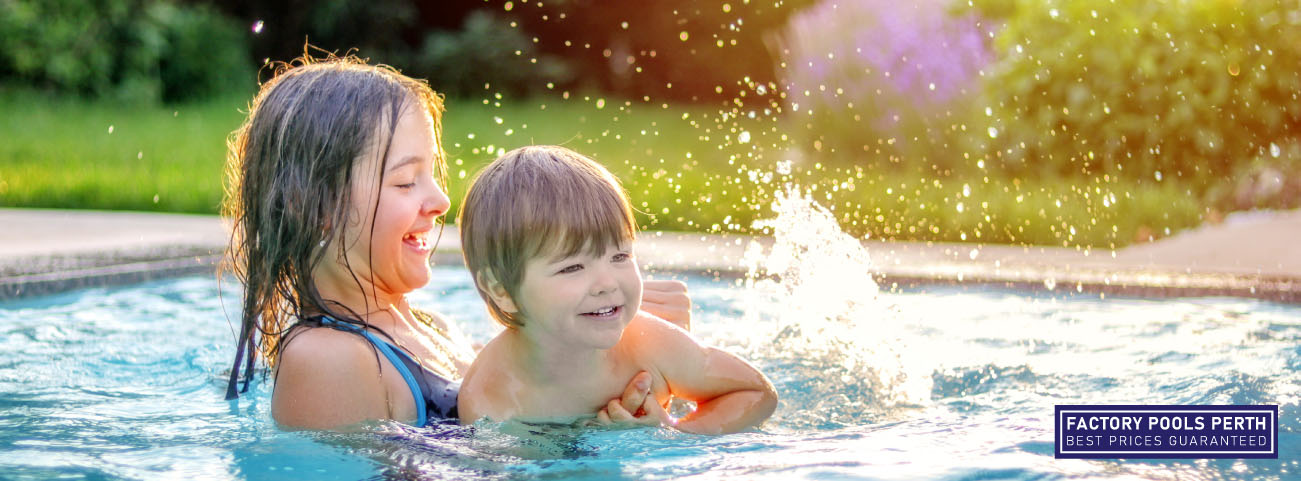
What is the value of your pool's pH?
When it first falls from the sky, rain has a pH of exactly 7.0, but as it travels through the atmosphere, it rapidly picks up impurities with a low pH.
The impact of rain with a low pH on the pH level of your pool is often relatively little; the only exception to this is when there is persistent heavy rain over days, which may necessitate the need to boost your pH. Rain that contains CO2 and sulfuric acid as a result of absorption from environmental gases is known as acid rain. The pH of rain of this type is not often particularly acidic, but it can vary from 5.5 to 6.5, which is sufficiently low to alter the pH levels of your pool and once again necessitate the need to elevate the pH.
Will the rain affect how alkaline the pool is?
Rain will cause the alkalinity level in your pool to decline over time, so you need to take steps to boost the alkalinity level. The Total Alkalinity of rainwater is quite close to being neutral. When it rains heavily, the water in your pool will become more dilute, which will cause the alkalinity level to drop by 5–10 ppm per day.
Eroding water surroundings may be produced in swimming pools with low alkalinity and pH levels. Damage to submerged metal exteriors, such as those found on pool lighting, ladders, and railings, can be caused by pool water that contains caustic components. In addition, eroding water can cause harm to the components of a swimming pool that the water runs through, such as pumps, filters, and heaters.
Also, the etching of brick pool surfaces, the wrinkling of vinyl pool liners, and the rusting of metal parts can all release chemicals into the water, which can stain and/or cloud the water. Changes can be made to the pH, total alkalinity, and calcium hardness to get the results you want when trying to stop corrosion.
What impact will heavier rains have on the calcium level of my pool?
The water’s hard or soft depends on how much calcium salts are in it. Rainwater has a hardness that is very close to zero. If your pool’s calcium hardness is already low (less than 200 ppm), adding hundreds of gallons of rainwater with 0 ppm can make it drop even more, forcing you to add calcium hardness to the pool. See how to keep your fibreglass pool maintained after heavy downpours here.
If the water in your pool was soft, to begin with (less than 200 ppm), adding rainwater with 0.0 ppm will have no effect. Dilution is the only known way of reducing water hardness. Thus, using rainwater to treat hard pool water is your only option. If the hardness of your pool water is over 400 parts per million (ppm), using rainwater might be useful.
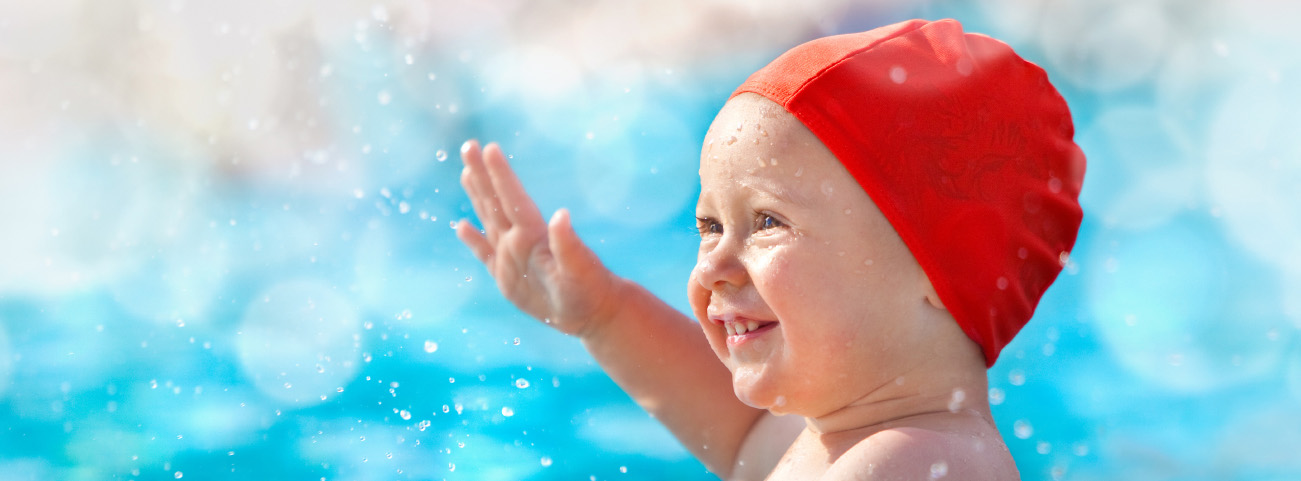
Should I put additional chlorine in the pool after heavy rains?
The pH, alkalinity, hardness, stabiliser, and chlorine levels in a swimming pool all drop when it rains because the pool water becomes more dilute.
Rain does not include chlorine. Raindrops also carry slight quantities of toxins, which are then drained into the pool. Leaves, dirt, and other trash also make your pool need more chlorine and use up your supply. When a storm or extended period of heavy rain is predicted for your region, it is prudent for you to elevate chlorine levels in your pool.
What should we do with salt?
In the event of persistent rain, salt pools might become diluted, necessitating the addition of more salt to the pool water. In addition, storms can introduce environmental debris, which results in the need for extra chlorination.
Is it possible that heavy rains may cause algae?
Rainwater is not the cause of algae growth, but it does have the potential to foster an environment favourable to the growth of algae.
Nitrates, Phosphates, and other organic pollutants will be brought to the pool due to the rain. As was just said, precipitation also has the effect of lowering chlorine concentrations. If it is predicted that your region will receive a significant amount of rain, you should ensure that your pool pump runs continuously round the clock, both while the rain is falling and after the rain has stopped. After ensuring your pool water is algae free, maintain it further with this guide.
It is of absolute importance that you treat your pool with a maintenance dosage of algaecide every week. The use of this chemical will aid in preventing the growth of algae. If algae cause your pool to turn green, an algaecide that contains copper should be used to remove the algae and restore the pool’s original colour.
Establishing a weekly regimen to maintain the water chemistry in your pool is essential. If there is rain every day, you must be sure your chemicals are still OK to use after it has rained. Keep in mind that preventative maintenance is the most effective measure you can take to avoid issues with the chemistry of your water.
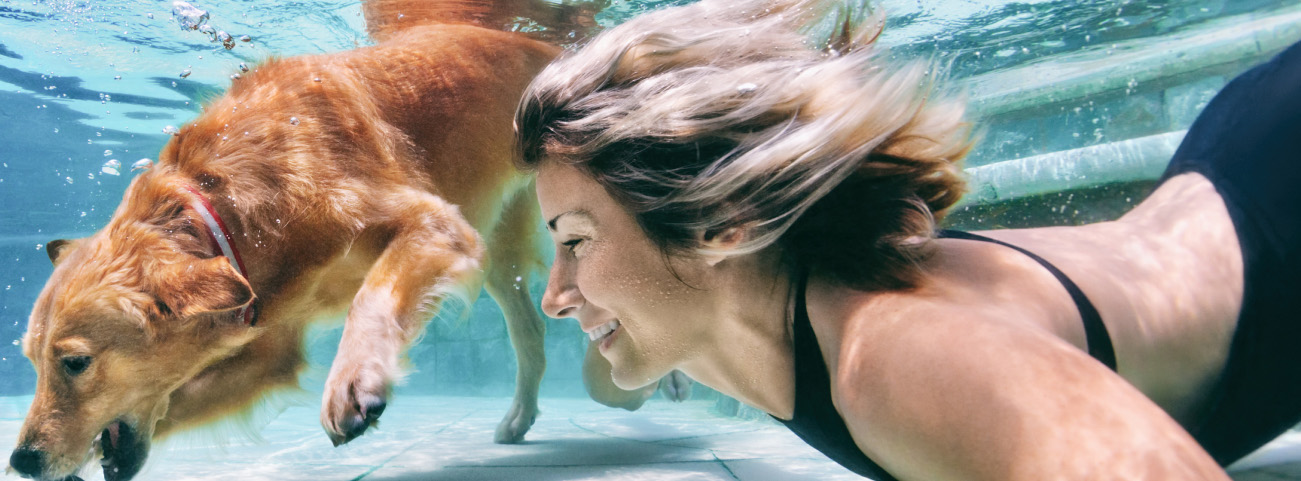
What to do after the storm?
You should perform the following steps as soon as the rainfall has passed.
- Ensure the level of water in your pool is correct
- If your swimming pool has flooded, you can lower the water level using a pump. Your skimmer’s doorway should ideally be submerged between one-half and three-quarters of the water.
- Activate the filtration for your pool.
- Purge your swimming pool.
- Conduct tests on the water in the pool and make any adjustments.
- Apply some kind of shock treatment to your pool.
Conclusion
Our pools do not have the same experience with rainfall, even though rain is essential for general development. If the water in our pools could talk, the first thing they’d probably want to know is why it needs to carry so many contaminants from one place to another. The uplifting news is that light rain seldom impacts the pools. However, as a safety measure, we strongly advise checking to see that everything is functioning correctly every time it rains. Contact one of our friendly pool builders for more advice!
How Rainwater Affects Your Pool
It is common knowledge that rainwater possesses acidic qualities, which can have a detrimental impact on the chemical equilibrium of your pool water. This may affect various factors, including the pH balance, alkalinity levels, and more.

What is the value of your pool's pH?
When it first falls from the sky, rain has a pH of exactly 7.0, but as it travels through the atmosphere, it rapidly picks up impurities with a low pH.
The impact of rain with a low pH on the pH level of your pool is often relatively little; the only exception to this is when there is persistent heavy rain over days, which may necessitate the need to boost your pH. Rain that contains CO2 and sulfuric acid as a result of absorption from environmental gases is known as acid rain. The pH of rain of this type is not often particularly acidic, but it can vary from 5.5 to 6.5, which is sufficiently low to alter the pH levels of your pool and once again necessitate the need to elevate the pH.
Will the rain affect how alkaline the pool is?
Rain will cause the alkalinity level in your pool to decline over time, so you need to take steps to boost the alkalinity level. The Total Alkalinity of rainwater is quite close to being neutral. When it rains heavily, the water in your pool will become more dilute, which will cause the alkalinity level to drop by 5–10 ppm per day.
Eroding water surroundings may be produced in swimming pools with low alkalinity and pH levels. Damage to submerged metal exteriors, such as those found on pool lighting, ladders, and railings, can be caused by pool water that contains caustic components. In addition, eroding water can cause harm to the components of a swimming pool that the water runs through, such as pumps, filters, and heaters.
Also, the etching of brick pool surfaces, the wrinkling of vinyl pool liners, and the rusting of metal parts can all release chemicals into the water, which can stain and/or cloud the water. Changes can be made to the pH, total alkalinity, and calcium hardness to get the results you want when trying to stop corrosion.
What impact will heavier rains have on the calcium level of my pool?
The water’s hard or soft depends on how much calcium salts are in it. Rainwater has a hardness that is very close to zero. If your pool’s calcium hardness is already low (less than 200 ppm), adding hundreds of gallons of rainwater with 0 ppm can make it drop even more, forcing you to add calcium hardness to the pool. See how to keep your fibreglass pool maintained after heavy downpours here.
If the water in your pool was soft, to begin with (less than 200 ppm), adding rainwater with 0.0 ppm will have no effect. Dilution is the only known way of reducing water hardness. Thus, using rainwater to treat hard pool water is your only option. If the hardness of your pool water is over 400 parts per million (ppm), using rainwater might be useful.
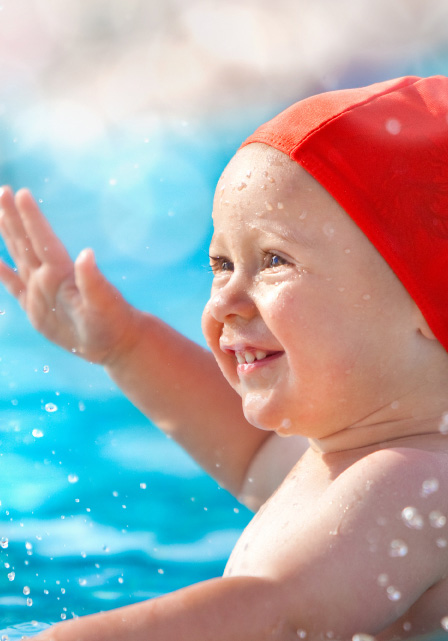
Should I put additional chlorine in the pool after heavy rains?
The pH, alkalinity, hardness, stabiliser, and chlorine levels in a swimming pool all drop when it rains because the pool water becomes more dilute.
Rain does not include chlorine. Raindrops also carry slight quantities of toxins, which are then drained into the pool. Leaves, dirt, and other trash also make your pool need more chlorine and use up your supply. When a storm or extended period of heavy rain is predicted for your region, it is prudent for you to elevate chlorine levels in your pool.
What should we do with salt?
In the event of persistent rain, salt pools might become diluted, necessitating the addition of more salt to the pool water. In addition, storms can introduce environmental debris, which results in the need for extra chlorination.
Is it possible that heavy rains may cause algae?
Rainwater is not the cause of algae growth, but it does have the potential to foster an environment favourable to the growth of algae.
Nitrates, Phosphates, and other organic pollutants will be brought to the pool due to the rain. As was just said, precipitation also has the effect of lowering chlorine concentrations. If it is predicted that your region will receive a significant amount of rain, you should ensure that your pool pump runs continuously round the clock, both while the rain is falling and after the rain has stopped. After ensuring your pool water is algae free, maintain it further with this guide.
It is of absolute importance that you treat your pool with a maintenance dosage of algaecide every week. The use of this chemical will aid in preventing the growth of algae. If algae cause your pool to turn green, an algaecide that contains copper should be used to remove the algae and restore the pool’s original colour.
Establishing a weekly regimen to maintain the water chemistry in your pool is essential. If there is rain every day, you must be sure your chemicals are still OK to use after it has rained. Keep in mind that preventative maintenance is the most effective measure you can take to avoid issues with the chemistry of your water.
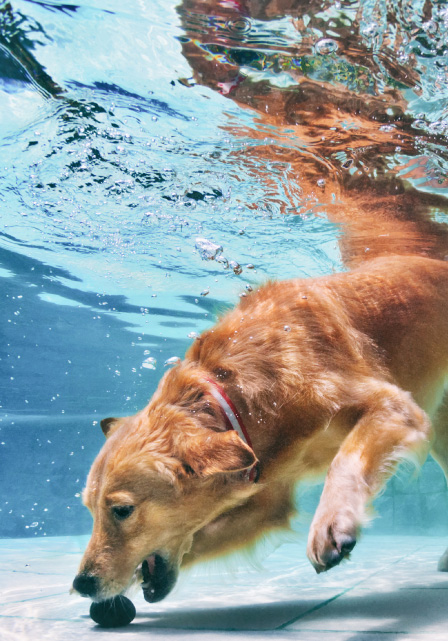
What to do after the storm?
You should perform the following steps as soon as the rainfall has passed.
- Ensure the level of water in your pool is correct
- If your swimming pool has flooded, you can lower the water level using a pump. Your skimmer’s doorway should ideally be submerged between one-half and three-quarters of the water.
- Activate the filtration for your pool.
- Purge your swimming pool.
- Conduct tests on the water in the pool and make any adjustments.
- Apply some kind of shock treatment to your pool.
Conclusion
Our pools do not have the same experience with rainfall, even though rain is essential for general development. If the water in our pools could talk, the first thing they’d probably want to know is why it needs to carry so many contaminants from one place to another. The uplifting news is that light rain seldom impacts the pools. However, as a safety measure, we strongly advise checking to see that everything is functioning correctly every time it rains. Contact one of our friendly pool builders for more advice!


